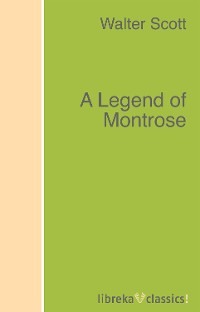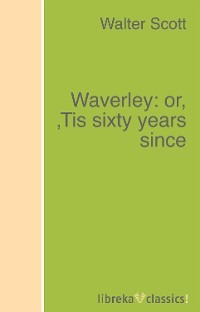
Полная версия
Kenilworth
"Do you say this to me, Amy?—do you offer me pageants of idle ambition, for the quiet peace you have robbed me of!—But be it so I came not to upbraid, but to serve and to free you. You cannot disguise it from me—you are a prisoner. Otherwise your kind heart—for it was once a kind heart—would have been already at your father's bedside.—Come, poor, deceived, unhappy maiden!—all shall be forgot—all shall be forgiven. Fear not my importunity for what regarded our contract—it was a dream, and I have awaked. But come—your father yet lives—come, and one word of affection, one tear of penitence, will efface the memory of all that has passed."
"Have I not already said, Tressilian," replied she, "that I will surely come to my father, and that without further delay than is necessary to discharge other and equally binding duties?—Go, carry him the news; I come as sure as there is light in heaven—that is, when I obtain permission."
"Permission!—permission to visit your father on his sick-bed, perhaps on his death-bed!" repeated Tressilian, impatiently; "and permission from whom? From the villain, who, under disguise of friendship, abused every duty of hospitality, and stole thee from thy father's roof!"
"Do him no slander, Tressilian! He whom thou speakest of wears a sword as sharp as thine—sharper, vain man; for the best deeds thou hast ever done in peace or war were as unworthy to be named with his, as thy obscure rank to match itself with the sphere he moves in.—Leave me! Go, do mine errand to my father; and when he next sends to me, let him choose a more welcome messenger."
"Amy," replied Tressilian calmly, "thou canst not move me by thy reproaches. Tell me one thing, that I may bear at least one ray of comfort to my aged friend:—this rank of his which thou dost boast—dost thou share it with him, Amy?—does he claim a husband's right to control thy motions?"
"Stop thy base, unmannered tongue!" said the lady; "to no question that derogates from my honour do I deign an answer."
"You have said enough in refusing to reply," answered Tressilian; "and mark me, unhappy as thou art, I am armed with thy father's full authority to command thy obedience, and I will save thee from the slavery of sin and of sorrow, even despite of thyself, Amy."
"Menace no violence here!" exclaimed the lady, drawing back from him, and alarmed at the determination expressed in his look and manner; "threaten me not, Tressilian, for I have means to repel force."
"But not, I trust, the wish to use them in so evil a cause?" said Tressilian. "With thy will—thine uninfluenced, free, and natural will, Amy, thou canst not choose this state of slavery and dishonour. Thou hast been bound by some spell—entrapped by some deceit—art now detained by some compelled vow. But thus I break the charm—Amy, in the name of thine excellent, thy broken-hearted father, I command thee to follow me!"
As he spoke he advanced and extended his arm, as with the purpose of laying hold upon her. But she shrunk back from his grasp, and uttered the scream which, as we before noticed, brought into the apartment Lambourne and Foster.
The latter exclaimed, as soon as he entered, "Fire and fagot! what have we here?" Then addressing the lady, in a tone betwixt entreaty and command, he added, "Uds precious! madam, what make you here out of bounds? Retire—retire—there is life and death in this matter.—And you, friend, whoever you may be, leave this house—out with you, before my dagger's hilt and your costard become acquainted.—Draw, Mike, and rid us of the knave!"
"Not I, on my soul," replied Lambourne; "he came hither in my company, and he is safe from me by cutter's law, at least till we meet again.—But hark ye, my Cornish comrade, you have brought a Cornish flaw of wind with you hither, a hurricanoe as they call it in the Indies. Make yourself scarce—depart—vanish—or we'll have you summoned before the Mayor of Halgaver, and that before Dudman and Ramhead meet." [Two headlands on the Cornish coast. The expressions are proverbial.]
"Away, base groom!" said Tressilian.—"And you, madam, fare you well—what life lingers in your father's bosom will leave him at the news I have to tell."
He departed, the lady saying faintly as he left the room, "Tressilian, be not rash—say no scandal of me."
"Here is proper gear," said Foster. "I pray you go to your chamber, my lady, and let us consider how this is to be answered—nay, tarry not."
"I move not at your command, sir," answered the lady.
"Nay, but you must, fair lady," replied Foster; "excuse my freedom, but, by blood and nails, this is no time to strain courtesies—you MUST go to your chamber.—Mike, follow that meddling coxcomb, and, as you desire to thrive, see him safely clear of the premises, while I bring this headstrong lady to reason. Draw thy tool, man, and after him."
"I'll follow him," said Michael Lambourne, "and see him fairly out of Flanders; but for hurting a man I have drunk my morning's draught withal, 'tis clean against my conscience." So saying, he left the apartment.
Tressilian, meanwhile, with hasty steps, pursued the first path which promised to conduct him through the wild and overgrown park in which the mansion of Foster was situated. Haste and distress of mind led his steps astray, and instead of taking the avenue which led towards the village, he chose another, which, after he had pursued it for some time with a hasty and reckless step, conducted him to the other side of the demesne, where a postern door opened through the wall, and led into the open country.
Tressilian paused an instant. It was indifferent to him by what road he left a spot now so odious to his recollections; but it was probable that the postern door was locked, and his retreat by that pass rendered impossible.
"I must make the attempt, however," he said to himself; "the only means of reclaiming this lost—this miserable—this still most lovely and most unhappy girl, must rest in her father's appeal to the broken laws of his country. I must haste to apprise him of this heartrending intelligence."
As Tressilian, thus conversing with himself, approached to try some means of opening the door, or climbing over it, he perceived there was a key put into the lock from the outside. It turned round, the bolt revolved, and a cavalier, who entered, muffled in his riding-cloak, and wearing a slouched hat with a drooping feather, stood at once within four yards of him who was desirous of going out. They exclaimed at once, in tones of resentment and surprise, the one "Varney!" the other "Tressilian!"
"What make you here?" was the stern question put by the stranger to Tressilian, when the moment of surprise was past—"what make you here, where your presence is neither expected nor desired?"
"Nay, Varney," replied Tressilian, "what make you here? Are you come to triumph over the innocence you have destroyed, as the vulture or carrion-crow comes to batten on the lamb whose eyes it has first plucked out? Or are you come to encounter the merited vengeance of an honest man? Draw, dog, and defend thyself!"
Tressilian drew his sword as he spoke, but Varney only laid his hand on the hilt of his own, as he replied, "Thou art mad, Tressilian. I own appearances are against me; but by every oath a priest can make or a man can swear, Mistress Amy Robsart hath had no injury from me. And in truth I were somewhat loath to hurt you in this cause—thou knowest I can fight."
"I have heard thee say so, Varney," replied Tressilian; "but now, methinks, I would fain have some better evidence than thine own word."






